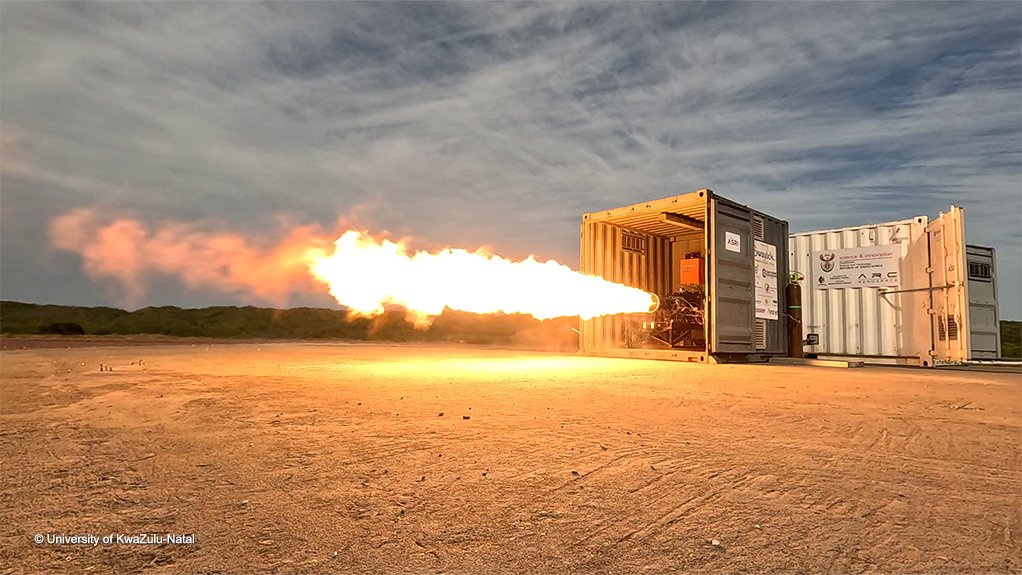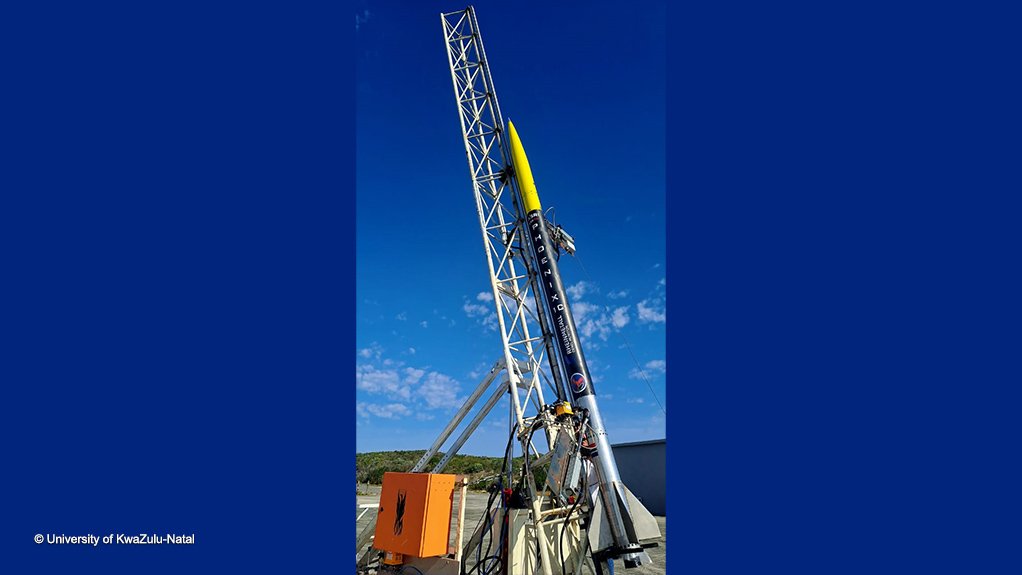The UK government is providing R2-million to fund a cooperative space propulsion technologies programme between the University of KwaZulu-Natal (UKZN) and the University of Glasgow. The funding is being made available through the UK Department of Science, Innovation and Technology.
“The UK government is delighted to support this project, further strengthening the SA-UK science and research relationship in this key area of mutual interest,” stated UK High Commission (Pretoria) Africa Science and Innovation Network head Aidan Darker. “We hope this will lead to further collaboration between the UK and SA in the space sector and the transfer of expertise between our two countries.”
The programme will involve collaboration between researchers at UKZN’s Aerospace Systems Research Institute (ASRI) and Glasgow’s Space and Exploration Technology Group. It will focus on improving metal additive manufacturing techniques (more popularly called 3D printing) to produce components for rocket engines.
“We’re delighted to begin this joint [research and development] programme with the University of Glasgow,” highlighted ASRI director Professor Michael Brooks. “Developing rocket technologies, and the ground systems to support commercial launch, is complex and time-consuming, and there are advantages to pooling resources and working with institutions that have similar ambitions. ASRI will be working closely with University of Glasgow engineers to solve some of the challenges facing the aerospace industry in the area of metal 3D printing.”
“There are striking similarities between the development journeys at the University of Glasgow and at UKZN,” affirmed Space and Exploration Technology Group leader Dr Patrick Harkness. “We encountered many of the same issues as we set up our capabilities, and we found that we chose to advance in broadly the same way in the past. That is why we are excited to be working together now, and as our ambitions grow and we move towards space, we will be tackling the next set of challenges together.”
Both universities have designed, built and tested rocket propulsion systems. Glasgow’s group is currently developing a ground test facility for cryogenic bipropellant rockets (at Machrihanish in Scotland). ASRI, funded by South Africa’s Department of Science, Technology and Innovation, has developed hybrid rockets, liquid propellant engines, and satellite thrusters for use in orbit. The UKZN institute also holds the current African altitude record for hybrid rockets, set in 2021, and is currently developing the SAFFIRE liquid-fuelled rocket motor, for space launch applications.
Edited by: Creamer Media Reporter
EMAIL THIS ARTICLE SAVE THIS ARTICLE
ARTICLE ENQUIRY
To subscribe email subscriptions@creamermedia.co.za or click here
To advertise email advertising@creamermedia.co.za or click here















